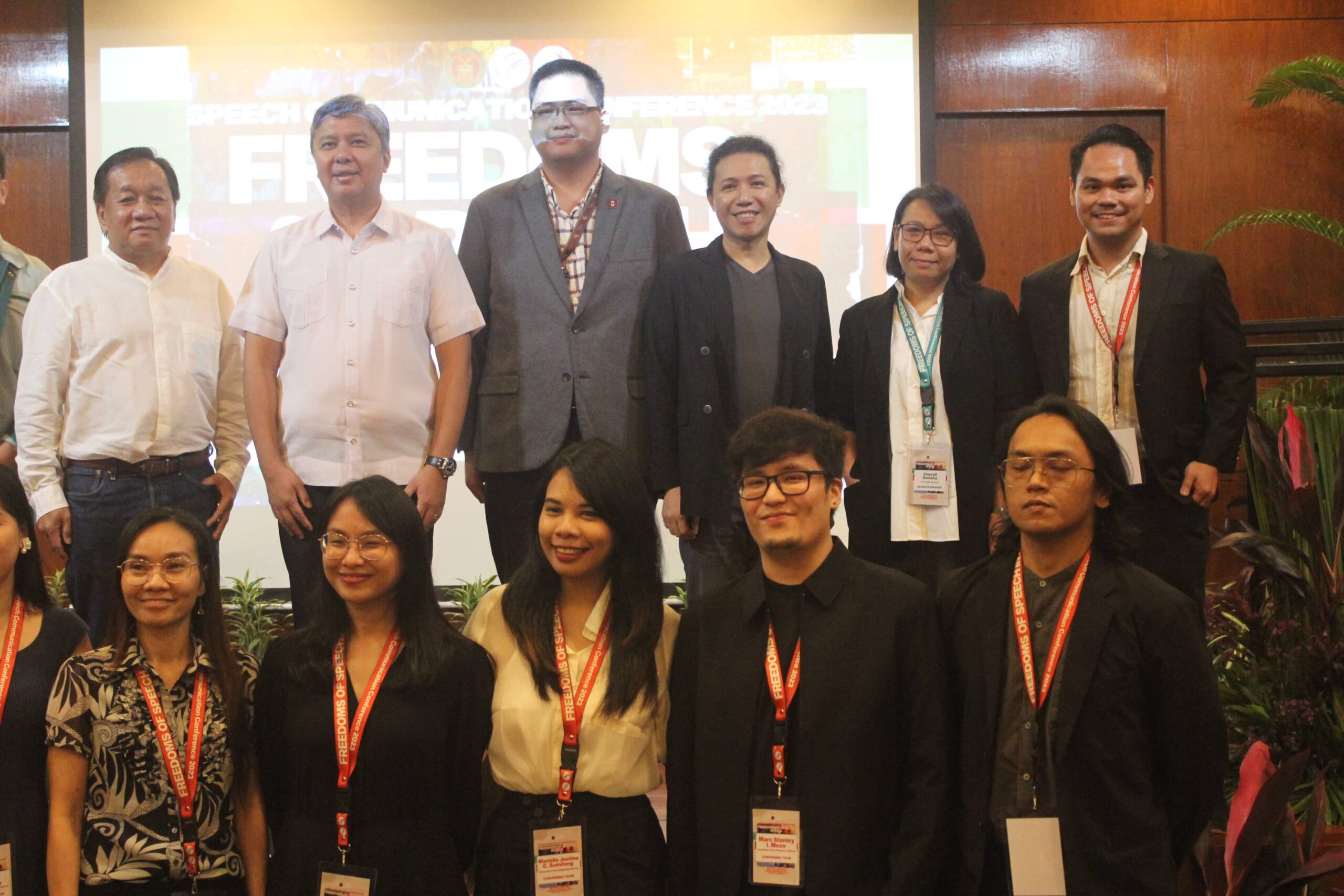The Department of Speech Communication and Theatre Arts (DSCTA) of the University of the Philippines (UP) College of Arts and Letters (CAL) held the “Freedoms of Speech in Asia: Speech Communication Conference 2023” on October 26-27, at UP Diliman’s Malcolm Hall.
The conference aimed to explore the various roles of speech across Asia as a concept, action, performance, process, and system of thought. The event sought to challenge prevailing perspectives that have impacted the appreciation of speech communication and spoken practices across the continent.
“This conference dedicated to ‘freedoms of speech’ in Asia probes this freedom in the plural with the goal of embedding its value in a broader horizon of gestures, expectations, and meanings, as well as making it relevant to diverse types and figures of speech that come into experience in everyday life in Asia,” the DSCTA said.
“To situate speech as a concept and a practice in Asia is to encounter multiple histories of suppression: from colonial conquests that subjugated local traditions and communities, imperial tutelage that structured collective ways of life and expression, Cold War interventions that antagonized homegrown ideological formations, political orders that stifled dissent and critique, through the current algorithmic regimes that distort the public sphere and its opportunities for discussion and deliberation,” it added.
“Questioning these frames of mind that have had deep and damaging effects not only on the vitality of speech communities but also on the valuation of oral traditions and spoken practices in the region, the DSCTA initiates a conference that accounts for the myriad ways that Asia actually enables and is, in turn, enabled by speech as an idea, an act, a performance, a process, and a system of thought and action.”
In his opening remarks, UP Diliman Chancellor Edgardo Carlo Vistan II emphasized the importance of freedom of speech in the historical and academic context of UP Diliman. He highlighted the University’s commitment to creating an environment where free speech, debate, and creative expression are not only protected but also celebrated.
“The phrase ‘freedom of speech’ is significant in the history of the country and of UP Diliman. Our various halls have served, and continue to serve, as venues where free speech, debate, argumentation, and creative and critical expressions are shielded from suppression and—more importantly—celebrated as cornerstones of the University’s identity and vision,” Vistan said.
“[The holding of this conference] is also a message of resistance to infrastructures and political actors in the context where freedom of speech, not only in the Philippines but in Asia, are limited and suppressed through various forms of disinformation and misinformation, historical distortions, and human rights violations,” he added.
“Together with the DSCTA, the University partakes in its effort to resist against these challenges through various scholarly and creative outputs, and more so, extension of public service beyond the University.”
CAL Dean Jimmuel Naval discussed the conference’s role in reinforcing DSCTA’s commitment to fostering a vibrant scholarly culture within the College and the broader academic community.
“[This] affirms DSCTA’s pivotal role in developing a vibrant research and scholarly culture in CAL, the University and the Philippine nation. The DSCTA is proactive in emphasizing the role of speech communication in forging social relations, bridging cultural differences, and understanding a communicative dimension of all sorts of phenomena,” Naval said.
“I acknowledge the commitment of the DSCTA to continue the ecology of communicative knowledge and practice in the Philippines through sustained scholarship and research, educational endeavors, and strategic partnership with public and private institutions.”
The conference featured two keynote lectures, two plenary panels, and six general panels. Ateneo de Manila University Associate Professor Jozon Lorenza and De La Salle University Manila Professor Cheryll Ruth Soriano served as keynote speakers. UP College of Mass Communication Dean Fernando Paragas and UP DSCTA Chair Oscar Serquiña Jr. participated as panelists in various sessions.
Several delegates shared their key takeaways from the conference. They emphasized the need for better political punditry in the Philippines.
“We need to further popularize political punditry because it’s very important, especially these days,” journalist and Marshall McLuhan Fellow Christian Esguerra said.
“There’s an explosion of opinion and, paradoxically, that means there’s a greater need for more informed, better-sourced pundits. We need more and better sources of opinion,” John Nery from Rappler and the Ateneo said. — with Samir Liao and Max Salvador

